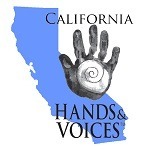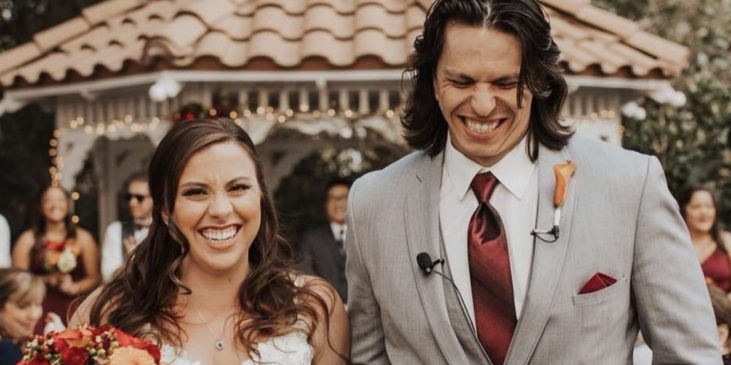I self-identify as….
Hard-of-hearing
What do you enjoy doing in your free time?
I like to workout, hike, go to the beach, hang out with my friends, and be with my family.
Please tell us about your earliest years of life related to your hearing, identification etc.
When I was 2 years old, my mom starting noticing that my speech and language wasn’t developing at the typical rate. She had me evaluated, and found out that I was hard-of-hearing. I was born with an ear deformity called Microtia that not only caused outer ear deformities but also caused inner ear deformities, causing me to be hard-of-hearing.
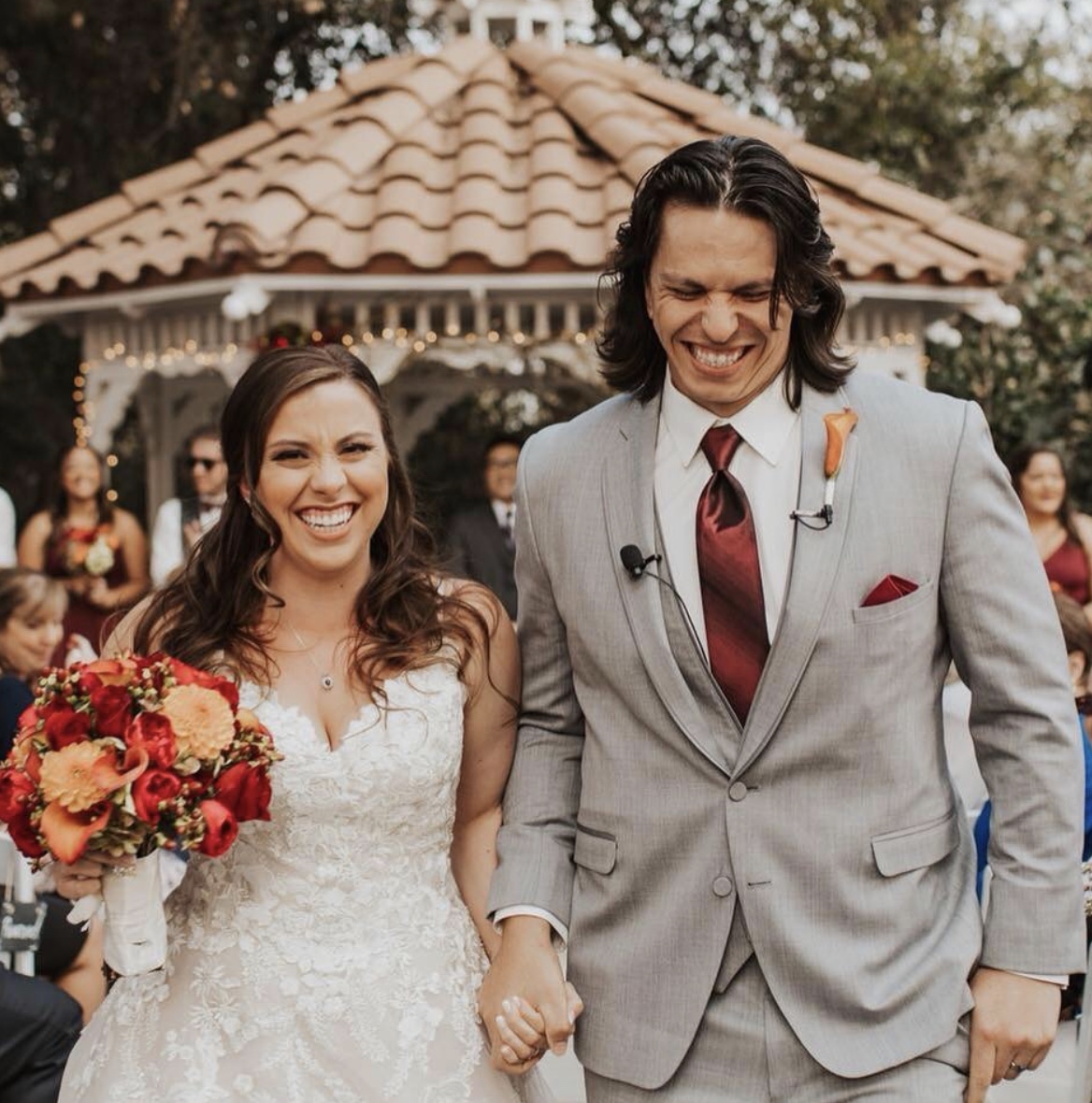 Please share about your relationship with your family and inclusion tips that you have found helpful.
Please share about your relationship with your family and inclusion tips that you have found helpful.
Growing up, my family was always very inclusive. They made sure that I was a part of conversations and activities regardless of my hearing abilities. When we would watch movies together, they would always make sure to put on closed captions for me, so that I didn’t miss out on any experience. They got so used to CC that they even put it on when I’m not with them. It gave them my perspective of that activity, and they were able to sympathize with me and encourage me.
Please share a little about your education placement & extracurricular activities as a youth.
From kindergarten to eight grade, I went to a school to a school in Ventura County that had a deaf program. I learned ASL throughout elementary school, and continued to use it for my whole life. At that school, I was given an interpreter when I would mainstream. Half of the classes were specifically for the DHH population, and the other half were mainstreamed. Even though I am hard-of-hearing, that didn’t stop me from wanting to be involved in sports,
Please tell us about your relationships with DHH peers as a youth and how they impacted your life.
Because I was in a DHH program, I was able to make a lot of friends who had the same abilities as me. My friends at school were great, and I was also able to make friends at a deaf camp. I started attended that camp as a camper and eventually became a counselor for a year. It was a great experience where I was able to be 100% me and was able to be with others who had experienced similar lifestyles.
Please share how you/your parents prepared for a new school year and any Tips for Teachers that worked for you.
On the first day of school every year before class started, I would introduce myself to my teacher and let them know that I am hard-of-hearing. I made sure to give them tools and tips to enhance my learning, such as making sure that they were in my hearing range as I sat in the front and center row, using interpreters, and note-taking. Being in the front of the class also diminished the distractions and allowed me to fully focus on the class. If I ever had any questions or lack of confidence about what’s going on in the class, I would write out things that I was unsure about and discuss those concerns with my teachers after the class. One of the key elements and one of my biggest recommendations is to have open communication with those teachers. They won’t know your struggles if you don’t talk to them. So being honest with them about what you’re feeling or where you’re struggling is going to help them and yourself.
Did you attend your IEP meetings? What memories do you have of your IEP, goals and services?
I attended IEP meeting in elementary school, but I don’t remember a lot of aspects of the meetings. One of my main memories though is how involved my mom was in the entire IEP process. She always wanted to make sure that I was on track, what my strengths and weaknesses were, and what needed to happen so that improvements could be made. When I was 100% mainstreamed in a private high school, they did not require IEP meetings. My mom, however, still made sure that those meetings took place so that I could stay on track and get the most out of my education.
What type of technology, apps or products for Deaf and Hard of Hearing individuals do you use?
I have a hearing aid made by Oticon that has Bluetooth. It has been so helpful throughout my undergraduate and graduate career. My professors wear a microphone that connects directly to my hearing aid, and it has really boosted my academic performance and my confidence. It’s also really helped with blocking out any distractions because I am completely focused on my professor. I also use my iPad or my phone and I’m able to listen to my pre-recorded lectures in case there was anything that I missed during the live lecture. Also, for alarms, I used a bed shaker alarm. Since being married and having a baby, my body wakes me up as soon as the baby starts crying!
Can you tell us a little about your college experience and how did you prepare for college? Any tips?
I started working with the Department of Rehabilitation (DOR) as soon as I started college. I was referred to them by another DHH friend, and they were able to help me with so many things: applications, school tuition, supplies, transportation, and many other required school expenses. I didn’t go to a college with a DHH population. There were only a few students that I knew of who were also DHH. Because I had been mainstreamed for high school and was a very social person, I was able to adapt to college life very quickly and easily.
Please share a little about your career and any tips for someone considering a similar career?
I am currently a full-time doctorate student studying Physical Therapy. I am going to be graduating in December 2020 with my Doctor of Physical Therapy. If anyone is considering a career in a medical field, I say “Go for it!” There are so many options for DHH students that can help them in achieving their dreams. Nothing can hold you back except yourself, so go all out!
Please tell us about your relationships with DHH peers as an adult. When meeting a new person what script have you found helpful when telling them that you are DHH?
I am very upfront when I meet a new person and tell them that I’m hard-of-hearing. It breaks the ice right away, and they immediately try to get to know and understand more about it. As for my DHH friends, I keep in touch with a lot of people that I grew up with. I don’t see them on a regular basis, but it’s always great to see what their lives look like on social media.
What were some of strategies that your parents, teachers or DHH role models taught you that helped you to be a confident independent person?
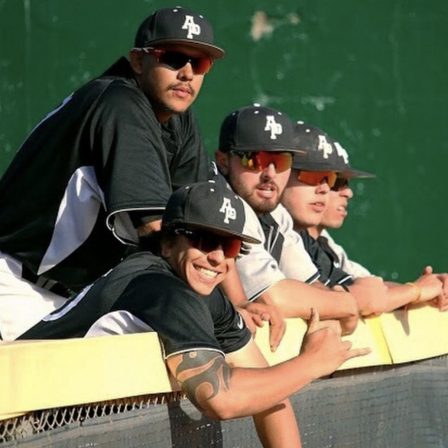
I really feel like my confidence and independence comes a lot from the encouragement of a friend from high school. She noticed that I was very quiet, and she was a very outspoken and outgoing person. The more I was around her and her friends, I felt really confident and open and they became my friends for life. This really pushed me to be outgoing and open and ready to become friends with whoever needed me. Sports also gave me a lot of confidence. When people hear that you’re DHH, they sometimes label you as “disabled.” They underestimate your abilities, on and off the field. But when they saw that I was successful with sports, they had a lot of respect for me and saw that my disability didn’t affect my performance. I was even named captain for football and baseball because of my dedication.
Most DHH children are born to hearing parents. This question may help parents see the world through their child’s eyes. Please tell us about your day to day life experiences as a DHH adult.
Because I was born to hearing parents, it was kind of hard because I relied a lot on my parents to translate for me. It because automatic to look to my parents to tell me what someone else was saying. It was frustrating at times because I felt like I didn’t have much independence. However, my parents were always encouraging me throughout my whole life when I would get frustrated or struggle. Because I’m the only DHH person in my family, it took a lot of learning for everyone to understand my life. My mom always made sure to tell me to not make excuses and to never give up. She didn’t let me blame struggles on being hard-of-hearing, and I think that gave me a lot more motivation to strive and be the best I can be.
What accomplishments are you most proud of in your life?
I am most proud of being a dad, first and foremost. My daughter means the world to me and my wife. She is what we are most proud of. I am also proud of not only graduating college but being accepted into a doctorate program for physical therapy. All of my hard work and dedication has really paid off and given me a chance to live out my dream of becoming a physical therapist and helping others. So next time you see me, call me Dr. G!
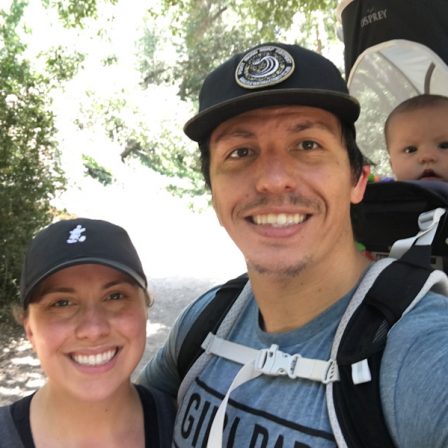
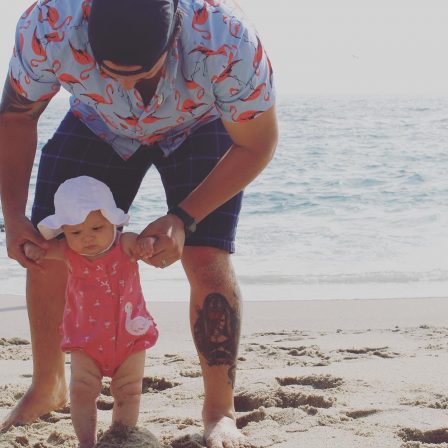
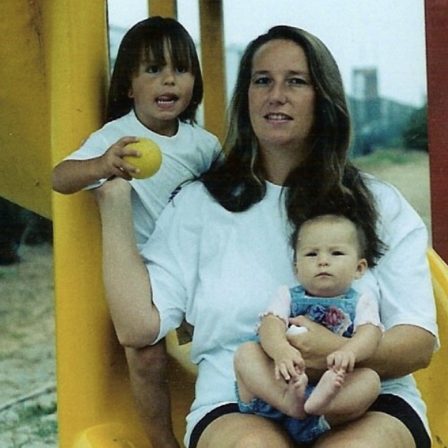
What tips and strategies do you have for communicating with a DHH person?
Just be open and honest about your preferences. People are usually pretty receptive to the tips that you give them. Because of COVID 19, it has become a challenge to communicate in some ways. I usually read lips, and I’m not able to do that with the masks on. Because we need to protect each other, the masks are essential, but I always tell my patients to just speak louder and a little slower so that we can both understand each other.
Favorite quote? Final comments?
Simple: Love yourself and accept your situation. You are capable and worthy. Don’t be afraid and don’t be self-conscious. You can always find good people who love and encourage you when you can love and encourage yourself.
Let’s go out with a bang! Complete this sentence to debunk a misconception about Deaf or Hard of Hearing people. “People may be surprised to know that I…..”
had a cosmetic surgery on my right ear (there was only a lobe when I was born; no ear canal) and the doctors gave me a prosthetic ear. After the surgery and because I have a muscular physique, people always assume that I “wrestle” because it looks like cauliflower ear. So it gives me a chance to bring awareness to Microtia, the DHH community, and my personal life.
